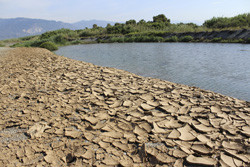Equitable water management
Water is essential for life and for raising food crops and livestock; yet it is an increasingly scarce commodity. Water management bodies currently lack the data required to make informed decisions. The EU-funded project WATPLAN(opens in new window) developed a monitoring system to help decision-makers fairly allocate water from the Incomati river basin that borders Mozambique, South Africa, and Swaziland. This consortium of European and African partners developed an earth observation system that uses high-resolution satellite images and in situ measurements. Parameters related to biomass production, crop water consumption (evapotranspiration) and water deficit are derived and sensors used to monitor rainfall and other relevant parameters. Combining different indicators provides key information such as the spatial distribution of renewable water resources, crop yield and water productivity (amount of water used per kilogram of harvestable crop). Data can be accessed per sub-region and for various land-use classes including forests, natural vegetation, sugarcane and other irrigated crops. Such data on water resource indicators will aid decision-makers in determining agricultural water need and consumption. Moreover, this data on the water cycle is also easily accessible by multiple users at differing locations. The project portal currently has over 70 registered stakeholders who regularly visit the site for water data in the 46 000 square kilometre basin. WATPLAN has advanced the water data products produced by other projects to enable greater time and space resolution to meet end-users' needs. Training sessions on image-processing for end-users and decision-makers should facilitate uptake and implementation. Policy makers can now sustainably utilise water resources for efficient and effective land management for the benefit of all.







